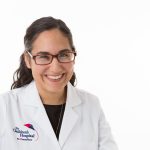Some, such as University of Rochester [N.Y.] Medical Center rheumatologist Bethany Marston, MD, shared their successes at the ACR’s Joint Division and Program Directors Forum during the 2018 ACR/ARHP Annual Meeting.
The process for adding a third fellowship slot at Rochester, Dr. Marston explains, involved a one-on-one discussion with the senior associate dean of graduate medical education, written proposals that stated the academic case (strengthening the standing of the division) and the business case (improving or at least not harming institutional revenue), approval by the division chief and department chair, and review and approval of the university’s academic practices committee.
The COTW is poised to help program directors interested in engaging in similar endeavors, says Dr. Jonas.
Pediatric Slots & Loan Forgiveness
Although there are not enough slots to train rheumatologists in adult medicine, pediatric rheumatology slots are remaining empty. Just half of the available fellowships were filled last year, Dr. Jonas explains.
The federal government provides for pediatric loan forgiveness in identified shortage areas, Dr. Worthing says, which could “help solve two problems at the same time by increasing demand for pediatric rheumatology fellowship slots,” and also “incentivizing them to practice in medically underserved areas.”
The ACR advocates for the continuation and appropriation of funds for that program, as well as the public service loan forgiveness program, which should also help address maldistribution by encouraging physicians to practice in shortage areas. However, recent problems with the public service loan forgiveness program have resulted in delayed or denied payments.3 The ACR will continue to work on the issue, Dr. Worthing says.
In addition, Georgia state representative Kim Schofield (D) has introduced a state bill that would provide loan repayment for rheumatologists and other cognitive specialists who practice in underserved areas not already covered by federal programs, as determined by the Georgia Board of Physician Workforce.4
If passed, it would grant providers $25,000 a year for four years to offset loan payments and could serve as a model bill for other states, Dr. Worthing says. It would also serve to help thousands of patients in each region in need.
Other Initiatives
The ACR also supports more training opportunities for international medical graduates—if more slots become available and policies that permit more qualified foreign physicians to practice in the U.S. are put into place.
“One of the other important initiatives is helping prepare advanced practice providers for rheumatology practice,” says Dr. Jonas, noting the ACR’s active involvement in online learning, such as the Advanced Rheumatology Course, eBytes and a new endeavor by the ACR, ARP and the American Academy of Physician Assistants that will bring providers together this summer for a face-to-face meeting for foundational instruction in rheumatology for health professionals.

